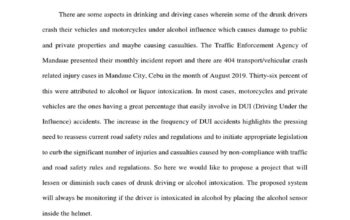The Large Hadron Collider (LHC), a monumental feat of engineering and scientific endeavor, epitomizes humanity’s relentless quest to decipher the cosmos’ intricate tapestry. Conceived at CERN, the European Organization for Nuclear Research, this colossal particle accelerator ignites fervent discourse across diverse segments of the scientific community and the public alike. This article examines the multifaceted perceptions of the LHC within the United States, highlighting the dichotomy of dreams and fears that it incites.
An initial sense of exhilaration pervades discussions surrounding the LHC, particularly among physicists who envision unearthing profound truths about the universe. The collider, which traverses the foundations of particle physics, seeks to replicate conditions akin to those just after the Big Bang. Physicists harbor aspirations of identifying novel particles, thus expanding the standard model of particle physics. The much-anticipated Higgs boson discovery in 2012 serves as a watershed moment that burgeoned hope. It not only corroborated theoretical predictions but also ignited a renewed interest in fundamental physics. For many researchers, particularly those hailing from the United States, the LHC represents an unprecedented laboratory for testing the limits of contemporary theories.
Moreover, the LHC embodies a collaborative spirit that transcends borders and cultures. American physicists regularly collaborate with their European counterparts, resulting in an amalgamation of intellectual prowess and innovative methodologies. This interdisciplinary synergy fosters an environment where groundbreaking ideas can flourish. For instance, numerous U.S. institutions, including prominent universities and national laboratories, have ensured their participation in the LHC’s experiments. Such involvement underscores the belief that discoveries made at the LHC have the potential to enhance understanding across various scientific realms, ranging from cosmology to particle physics dynamics.
However, the overwhelming enthusiasm surrounding the LHC is not universally endorsed. A counter-narrative, laden with apprehension, often emerges in public discourse. Critics voice concerns regarding the energy levels generated by particle collisions at the LHC, which, although minuscule compared to cosmic events, engender fears of hypothetical cataclysmic outcomes. Some skeptics have proferred the notion that high-energy collisions could inadvertently create micro black holes or trigger unexpected phenomena with catastrophic implications. While the scientific consensus deems such scenarios improbable, the specter of misinterpretation lingers, contributing to public anxiety.
Furthermore, the intersection of science and societal impacts manifests in broader ethical dilemmas surrounding the LHC’s research. Questions arise regarding the allocation of immense financial resources—billions of dollars invested in LHC infrastructure and research—especially amid pressing societal issues such as climate change and healthcare. Critics argue that prioritizing fundamental physics may detract from urgent real-world concerns. Proponents of LHC research contend that exploring fundamental questions of existence ultimately enriches society and leads to technological advancements in unforeseen ways. The debate encapsulates a larger conversation about how societies prioritize scientific endeavors in an era of limited resources and competing demands.
Academic circles in the United States vigorously engage with these dichotomies, leading to informed dialogue. Conferences and symposiums frequently bring together diverse perspectives on the implications of LHC findings. Discussions extend beyond particle physics and encompass philosophical considerations, such as the nature of scientific inquiry and the moral responsibilities of researchers. Theoretical physicists and philosophers of science often converge to reflect on the implications of discovering exotic particles or validation of supersymmetry theories. Such dialogues engender a holistic recognition of the LHC’s significance within a larger epistemological framework that intertwines knowledge generation with ethical contemplation.
Moreover, the heightened visibility of the LHC in popular culture shapes public perception. Documentaries, books, and media feature the LHC, chronicling its ambitious ambitions to unlock nature’s secrets. This narrative serves to elevate public understanding and appreciation of high-energy physics. However, it also poses the risk of sensationalizing scientific endeavors, distorting public perceptions regarding the scale and consequences of new discoveries. The rhetoric surrounding “collider dreams” can lead to inflated expectations, magnetizing public interest yet potentially culminating in disillusionment should anticipated breakthroughs not materialize.
Educational initiatives aimed at demystifying the LHC also form a critical component of how the U.S. perceives its impact. Science outreach programs strive to engage younger generations, enveloping them in the excitement of theoretical physics and encouraging future scientific pursuits. Such efforts endeavor to mitigate fears by fostering an understanding of the rigorous processes underpinning scientific experimentation. In cultivating a scientifically literate populace, the LHC’s contributions may be framed within an optimistic narrative that posits scientific exploration as a cornerstone of progress.
In conclusion, the U.S. perception of the LHC embodies a complex interplay of ambition and trepidation. On one hand, the collider is revered as a beacon of hope, promising transformative insights into the fundamental architecture of the universe. Collaborative endeavors strengthen the resolve of the scientific community, with American researchers playing pivotal roles in advancing knowledge. On the other hand, public fears and ethical considerations remind scientists and policymakers of the necessity to engage thoughtfully with societal ramifications and expectations. Navigating this delicate balance will be imperative as humanity continues its quest for knowledge at the frontiers of particle physics.












